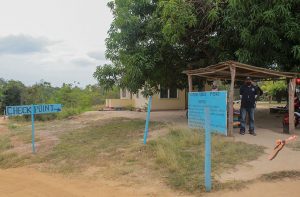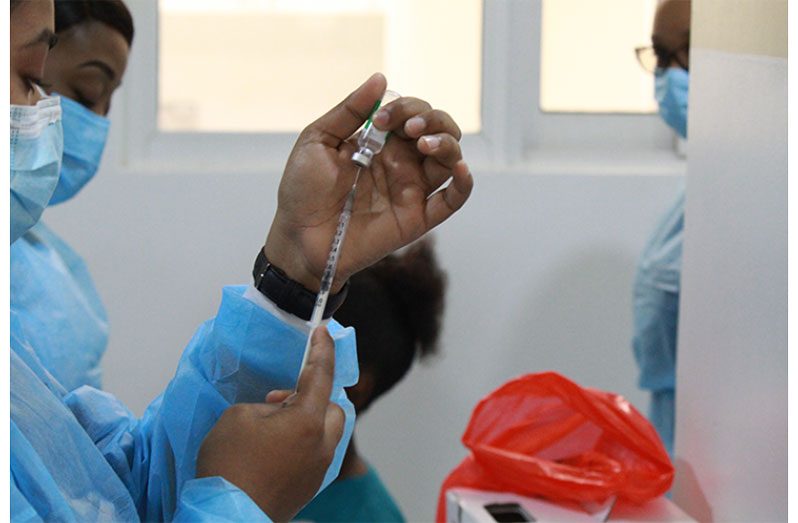–health authorities mull scaling up vaccination in Brazil border regions
ALL of the frontline healthcare workers in Region Nine (Upper Takutu-Upper Essequibo) have received their COVID-19 vaccination which allows them to be immunised against the Sars-Cov-2 virus which causes the disease, COVID-19, according to Minister of Health, Dr. Frank Anthony.
Though on Monday, during his COVID-19 Update with the Department of Public Information (DPI), the minister mentioned that few regions have been able to achieve 100 per cent immunisation coverage of healthcare workers, on Tuesday, he clarified that it was only Region Nine.
“Other regions haven’t achieved 100 per cent (coverage), but certainly a large per cent, and that is Region Two and Region Six. In both Regions Two and Six, they have about 70 per cent of their healthcare workers,” the health minister said during his update on Tuesday.
He noted that other regions have been “lagging” in getting their healthcare workers vaccinated. Last week, he mentioned that Region 10, in particular, has had a slow uptake of vaccines.

Aside from the 100 per cent coverage of frontline workers in Region Nine, Dr. Anthony said that the local health authorities have been deliberating whether they should allow more persons in Region Nine, and also in Region Eight, to get inoculated.
“I think those two regions are a bit concerned because of their proximity to Brazil and sometimes you have people coming across from Brazil who might not come through the official channels, so there is no way of knowing whether they have crossed over into Guyana,” the health minister lamented.
He, however, noted that a surveillance network has been instituted in the Rupununi and in Region Eight to enable local authorities to detect whether persons have crossed over and to test those persons for the virus.
“That type of monitoring is going to continue. We are also going to monitor to reduce the amount of people crossing,” Dr. Anthony said, adding: “We know that the challenge that Brazil is currently experiencing with the P1 variant and certainly we would like to reduce that kind of influx of people coming across the border.”
Amid concerns over the continued illegal crossings from Brazil, patrols and checkpoints at the Guyana-Brazil border will be increased in a bid to reduce the importation of COVID-19 cases, according to Director of the National COVID-19 Task Force (NCTF), Colonel Nazrul Hussain.
Last Wednesday, members of the NCTF engaged the regional authorities and residents in Regions Eight and Nine; this was done as part of efforts geared at intensifying monitoring of the porous and expansive Guyana/Brazil border. While there, the enforcement of the National COVID-19 guidelines and other issues, such as trafficking in persons, were discussed.
Cognisant of this, Colonel Hussain noted that the Task Force would be increasing the number of soldiers monitoring the border and adding several new checkpoints.
“We plan to use the ranks of the Guyana People’s Militia to be able to assist in this regard… and we will be mobilising the local ranks from the Guyana Police Force because we will be increasing the force in the area,” Colonel Hussain also highlighted.




.png)









